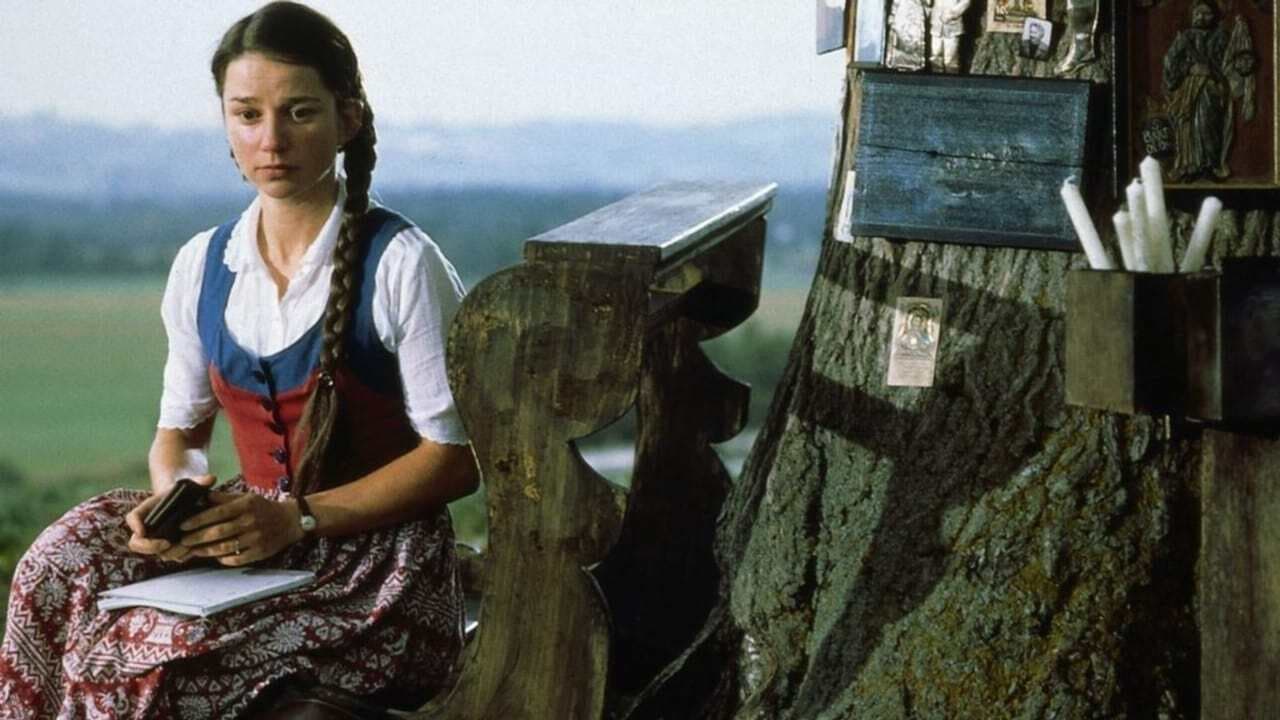

'The Nasty Girl' tells an interesting story that I did a bit of reading about sometime before this movie came along. I had learn that a young German girl named Anja Rosmos had done some probing and found that her little town had had some major ties with Nazi Germany.The local politicians were outraged and warned her not to do anymore snooping around but she went digging anyway. She came to find that a former residence of Hitler resided right there in Passau. The townspeople were outraged and Rosmos' life became a nightmare. She was threatened, beaten, her husband left and her reputation was destroyed.The movie tells the same story but changes the names and makes the story lighthearted. The girl's name in the film is Sonja Rosenberger and she lives in Bavaria. Somehow these changes made the film feel artificial. I would much rather see either a straightforward biography or a documentary on this subject but not this approach in which I learned basically nothing.The movie is so light and nice about a rather dark subject. Watching Sonja I felt that I was watching a staged, sanitized version Anja's story by someone who knows little or nothing about this subject. It was nominated for the Academy Award for Best Picture so obviously someone found something in it to like but for me, I felt gypped
... View MoreGerman playwright Bertolt Brecht felt that theatre should teach the audience certain moral lessons, and to this end he developed a mode of presentation frequently described as "theatre of alienation"--a type of production in which the audience is never allowed to fully identify with the characters and their situations and is instead asked to critically observe the material and draw conclusions from it. For the most part, this is a style that works best on the stage--but director Michael Verhoeven uses it as a springboard for THE NASTY GIRL. And the result is one of the few instances in which these Brechtian concepts come successfully to the screen.The story is wickedly funny. A bright young lass, the daughter of two teachers, wins an essay contest--and when the next contest is announced she again decides to compete, this time with an essay on "My Hometown During The Third Reich," in which she plans to show how her small Bavarian town resisted Nazism. But few, even those regarded by the townfolk as heroes of that era, are willing to discuss it--and those that do provide conflicting information. She eventually gives up the project, but it continues to fester in the back of her mind, and some years later when she resumes her research with the idea of writing a book she discovers that the anti-Nazi heroes were not, perhaps, either anti-Nazi or heroic.The main thrust of the film centers upon Sonja's relentless battle against the powers that be to obtain access to documents from the Nazi era, and how civic leaders work to frustrate her--both by persistently dodging her demands for the material and by direct terrorism. But their resistance makes Sonja all the more determined, and she becomes willing to pay any personal price. Ultimately, she does arrive at some of the truth, only to discover that she has now been enshrined by civic leaders as a "hero" in an effort to silence her with praise.Director Michael Verhoeven presents the story in an odd mix of documentary and theatrical and realistic styles that mesh extremely well to create that famous Brechtian effect without ever actually seeming preachy. And leading actress Lena Stolze, as "the nasty girl" who accidentally drifts into the role of advocate for the truth at any price, is equally remarkable: she gives a very likable, bemused performance that draws the viewer in even while maintaining the necessary degree of detachment the style requires. Not all viewers will appreciate the film--some will find the subject too dark, others may not be able to buy into the style--but this is a brilliant film, and you owe it a chance. Strongly recommended.Gary F. Taylor, aka GFT, Amazon Reviewer
... View MoreThe Nasty Girl is a movie unlike any other that's for sure. I found it interesting that they choose to start the movie with her mother being asked to leave her job as a teacher for being pregnant. She was married, and I don't feel like the children she taught were of an age where that wasn't acceptable. I think Michael Verhoeven was trying to foreshadow that she was going to be a trouble maker, but I still didn't think it was necessary for her mother to loose her job. I did like the scene where she throws the fish they were having for lunch back into the water. There is nothing nasty about Sonja's character. Due to the misleading translation of the title, the film is often put in the adult section of the video store when there is nothing pornographic about the film's content. The film really should be put in the drama or history sections of a video store.Overall I thought the film was good. I didn't agree with some of the transitions (like how all of a sudden Wegmus goes from her teacher to her boyfriend over the course of a car ride to school) there should have been more there especially because she is barely a teenager when they first kiss and he is about to graduate from college. But I did like the photography and the overall theme of the movie. I think Sonja's character showed that you can do anything you put your mind to. She was determined to find answers, and she didn't let anything stop her. She wants to make things better for her children so they don't grow up learning all of the corrupt things the her town has been covering up. Overall the production, direction and acting were very well done. I would definitely recommend the film, but please realize you are watching German cinema, which is usually a little strange when you are used to American style movies.
... View MoreDas Madchen Schreckliche (The Nasty Girl) is about high school student girl who write an essay of her town during War World II. She gets a violent opposition for search the truth in her essay. The film is based on a true story. I remember seeing the woman on 60 Minutes a couple years ago talking about her life that the film is based. The performances in the movie was great but the ending was weak.
... View More